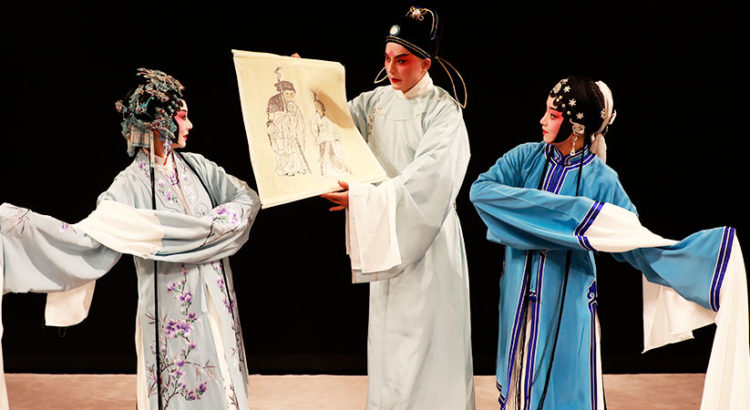It is so cool that the Chinese opera came to Ann Arbor this past weekend and, while I don’t think I’ll become an avid fan of the art form, I’m really glad that I can say I’ve had the experience. I didn’t realize that this performance is in honor of the Confucius Institute ending its ten year contract with Umich. Apparently the University is planning on better incorporating the study of Chinese culture and history into its academics in lieu of a continued partnership with the Institute. However, I find it hard to believe that the University will be able to do so to the extent of the Confucius Institute and its programming, such as going to Chinese Americans’ homes for traditional cooking and cultural exchange. The director also stressed the difficulty in planning the opera’s visit to Ann Arbor during opening remarks Saturday night which makes me wonder if the current state of US-Chinese politics has something to do with it.
The performance itself was vibrant and expressive. While the singing wasn’t quite my cup of tea, I loved the costumes made of beautiful mixes of bright and pastel silk, interesting hats, and jewel encrusted headdresses. I especially appreciated that the performance featured a translation which was projected onto the back wall of the stage throughout the show. In my experiences with European opera you’re usually expected to know the German/Italian or just follow along based on the acting and music.
My expectation that the storyline would feel different from the typical European opera was correct. When I read the description of the story before seeing the performance I expected the opera to follow Cai Bojie’s trip to the capital and his first wife’s struggle to care for his parents then end with their reunion. Instead, the performance started with Cai Bojie finding his wife’s painting of his parents in the temple and focused mainly on hum reuniting with his first wife and the second wife coming to terms with the situation. While it felt a bit abrupt, like we had started in the middle of a story, it tracks with what I’ve been told and experienced in non-western storytelling as this opera focused on the human relationships and emotions rather than a grand quest.
Image courtesy of the Michigan Theater.



I also would have loved to see the entire story unfold, but that probably would have been a nine-hour opera instead of a three-hour opera. It is sad the Confucius Institute is leaving, the cultural events they bring to this campus are exceptional, I am just glad their contract ending aligned with my graduation.